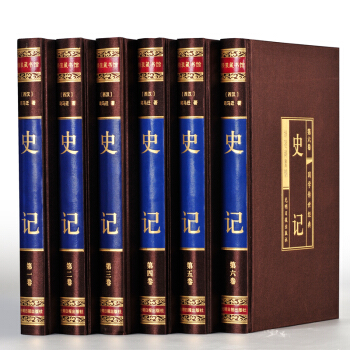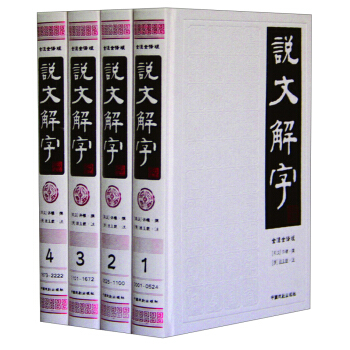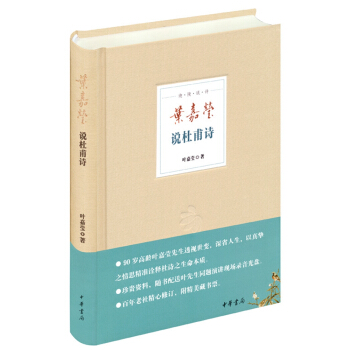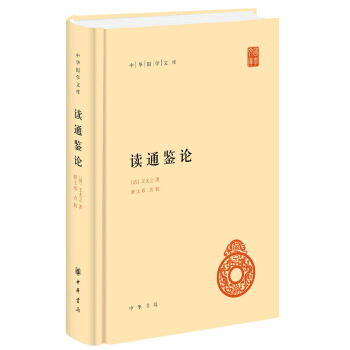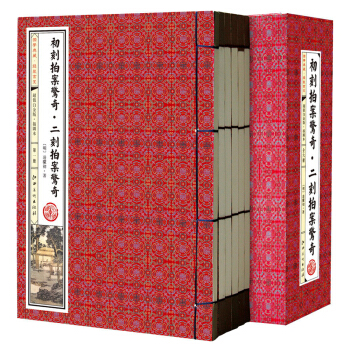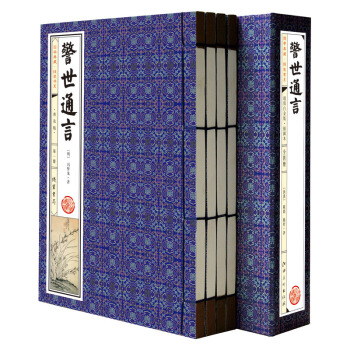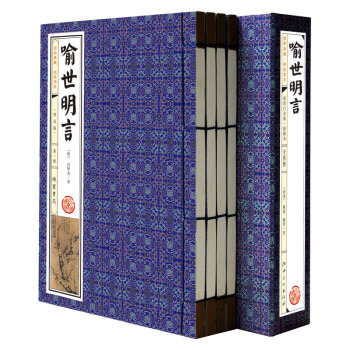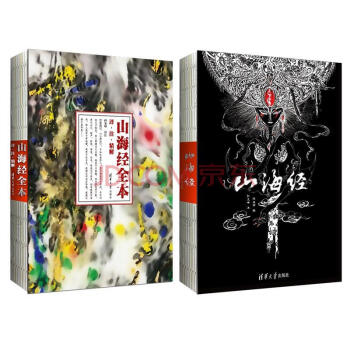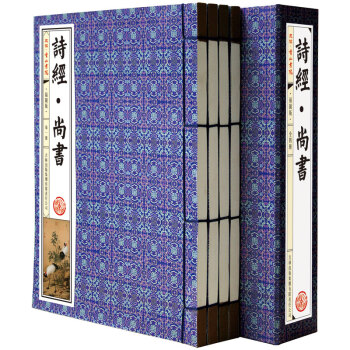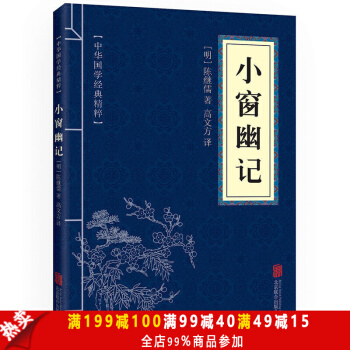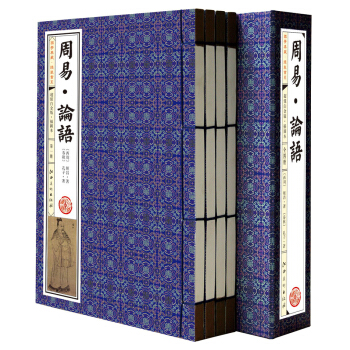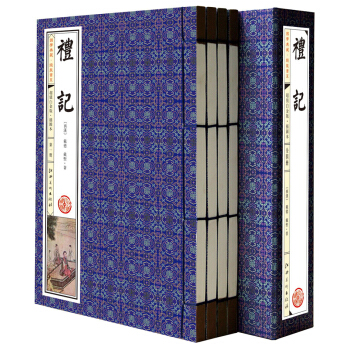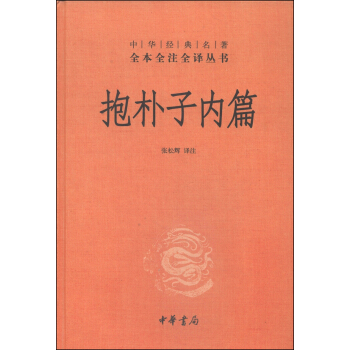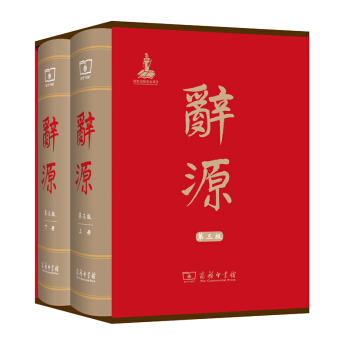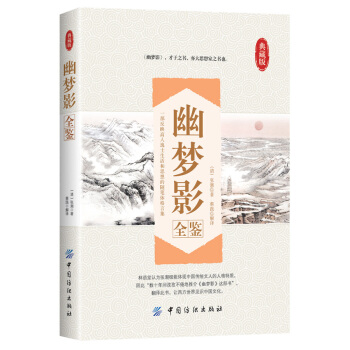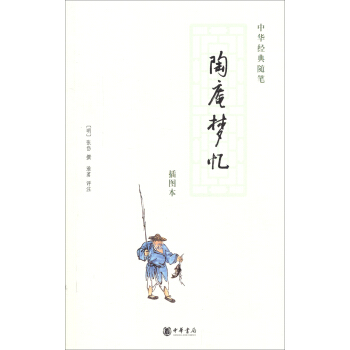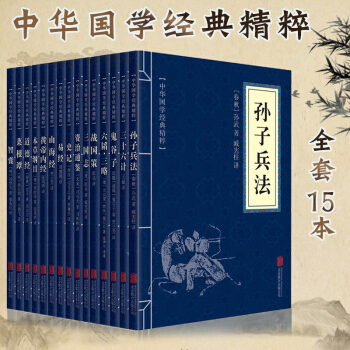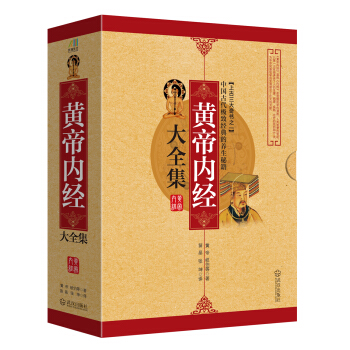![许渊冲英译中国经典诗文集-论语(精装)(汉英) [Thus Spoke the Master]](https://pic.tinynews.org/10924282/5996a487N70b0fb2d.jpg)

具体描述
编辑推荐
丛书译者为许渊冲先生,其从事翻译工作70年,2010年12月荣获“中国翻译文化终身成就奖”;2014年8月荣获由国际译联颁发的文学翻译领域很高奖项——“北极光”杰出文学翻译奖,成为首位获该奖的亚洲翻译家。
经许先生的妙手,许多中国经典诗文被译成出色的英文韵语。这套汉英对照版“许译中国经典诗文集”荟萃许先生具代表性的英文译作14种,汉语部分采用中华书局版本。这些作品包括多种体裁,上起先秦,下至清代,既是联接所有中国人思想、情感的文化纽带,也是中国文化走向世界的重要桥梁。阅读和了解这些作品,即可尽览中国文化的“源头活水”。相信这套许氏译本能使英语读者分享孔子、老子的智慧,分享唐诗、宋词、中国古典戏曲的优美,并以此促进东西方文化的交流。
2015年2月2日,由中国出版协会举办的第五届中华优秀出版物奖在京揭晓, “许译中国经典诗文集”(汉英对照)(14册)荣获“提名奖”。
此商品两种封面,随机发货。
内容简介
许渊冲--诗译英法专家 ,北京大学教授,翻译家。希望这套许氏译本能使英语读者对中国经典诗文也能“知之,好之,乐之”,能够分享孔子、老子的智慧,分享唐诗、宋词、中国古典戏曲的优美,并以此促进东西文化的交流。值得珍藏。许渊冲先生从事翻译工作70年,2010年12月荣获“中国翻译文化终身成就奖”。他被称为将中国诗词译成英法韵文的专家,经他的妙手,许多中国经典诗文被译成出色的英文和法文韵语。这套“中国经典诗文集”就是由他所译,前半部分是英文,后半部分是中文。
Ancient Chinese classic poems are exquisite works of art. As far as 2,000 years ago, Chinese poets composed the beautiful work Book of Poetry and Elegies of the South, Later, they created more splendid Tang poetry and Song lyrics. Such classic works as Thus Spoke the Master and Laws: Divine and Human were extremely significant in building and shaping the culture of the Chinese nation. These works are both a cultural bond linking the thoughts and affections of Chinese people and an important bridge for Chinese culture and the world. Mr. Xu Yuanchong has been engaged in translation for 70 years. In December 2010, he won the Lifetime Achievement Award in Translation conferred by the Translators Association of China (TAC). He is honored as the only expert who translates Chinese poems into both English and French. After his excellent interpretation, many Chinese classic poems have been further refined into perfect English and French rhymes. This collection of Classical Chinese Poetry and Prose gathers his most representative English translations. It includes the classic works Thus Spoke the Master, Laws: Divine and Human and dramas such as Romance of the Western Bower, Dream in Peony Pavilion, Love in Long-life Hall and Peach Blossom Painted with Blood. The largest part of the collection includes the translation of selected poems from different dynasties. The selection includes various types of poems, lyrics and Yuan, Ming and Qing dynasty songs. The selected works start from the pre-Qin era to the Qing Dynasty, covering almost the entire history of classic poems in China. Reading these works is like tasting "living water from the source" of Chinese culture. We hope this collection will help English readers "know, love and appreciate" Chinese classic poems, share the intelligence of Confucius and Lao Tzu, share the gracefulness of Tang Dynasty poems, Song lyrics and classic operas and songs and promote exchanges between Eastern and Western culture. This book is one of the 14 books of Classical Chinese Poetry and Prose, a translation of Confucian classics Thus Spoke the Master.
作者简介
许渊冲,1921年出生于江西南昌。先后毕业于西南联大、巴黎大学。北京大学文学翻译教授。英文著作有《中诗英韵探胜》、《逝水年华》。译作方面,除了由英国企鹅出版公司出版的汉译英《不朽之歌》外,还有《诗经》、《楚辞》、《唐诗三百首》、《宋词三百首》、《李白诗选》、《苏东坡诗词选》、《西厢记》和《毛泽东诗词选》等英译或法译。外译汉则有福楼拜《包法利夫人》等世界文学名著多种。2010年,荣获中国翻译文化终身成就奖。
内页插图
精彩书评
历代诗、词、曲译成英文,且能押韵自然,功力过人,实为有史以来di一。
——顾毓琇,已故美国宾州大学荣誉退休教授
许教授已因其对中国诗歌的韵译而赢得世界性的声誉。
——奚如谷,加州大学伯克利分校教授
许教授的《楚辞》英译当算英美文学里的一座高峰。
——寇志明,澳大利亚墨尔本大学学者
许译《西厢记》在艺术性和吸引力方面,可以和莎士比亚的《罗密欧与朱丽叶》媲美。
——英国智慧女神出版社
目录
Contents
目 录
Preface
Chapter I
Chapter II
Chapter III
Chapter IV
Chapter V
Chapter VI
Chapter VII
Chapter VIII
Chapter IX
Chapter X
Chapter XI
Chapter XII
Chapter XIII
Chapter XIV
Chapter XV
Chapter XVI
Chapter XVII
Chapter XVIII
Chapter XIX
Chapter XX
序
学而篇第一
为政篇第二
八佾篇第三
里仁篇第四
公冶长篇第五
雍也篇第六
述而篇第七
泰伯篇第八
子罕篇第九
乡党篇第十
先进篇第十一
颜渊篇第十二
子路篇第十三
宪问篇第十四
卫灵公篇第十五
季氏篇第十六
阳货篇第十七
微子篇第十八
子张篇第十九
尧曰篇第二十
精彩书摘
Chapter VIII
8.1. Tai Bo, said the Master, might be said to have the highest virtue, for he had thrice renounced the throne. He was beyond the praise of the people.
8.2. Beyond propriety, said the Master, respect would lead to labor lost, caution to timidity, courage to violence, and even frankness would hurt. If cultured men are affectionate to their kins, then people will be inspired to do good. If old friends are not forgotten, then people will not be negligent.
8.3. When Master Zeng was ill, he summoned his disciples around him and said, “Uncover my feet and uncover my hands! It is said in the Book of Poetry: ‘Be careful as if you did stand On the brink of the gulf of vice Or tread upon the ice!’ From now on, I need not be so careful, my young friends.”
8.4. When Master Zeng was ill, Meng Jing Zi came to inquire after him. Master Zeng said, “When a bird is about to die, its song is mournful. When a man is about to die, what he says is good. In performing the rites, a cultured man will pay attention to three things: how to look inoffensive and respectful, appear trustworthy, and be free from vulgarity in speech. As to sacrificial service, he will leave it to officials in charge.”
8.5. Master Zeng said, “The capable may consult the incapable, the possessor of much may consult those of little; those who have may appear to have not, those who are full may appear empty; a man may take no care even when he is offended. Such was the way of one of my former friends.”
8.6. Master Zeng said, “Is he not an intelligentleman who can be entrusted with a helpless orphan prince and the fate of a state, and who dare to face danger without fear? Yes, he is.”
8.7. Master Zeng said, “An intellectual should be strong and steady, for his duty is heavy and his journey will be long. Is it not a heavy duty to be a man of men? Is his journey not long which will not end until his death?”
8.8. A man, said the Master, may be inspired by poetry, established in performing the rites, and perfected by music.
泰伯篇第八
共二十一章
8.1 子曰:“泰伯⑴,其可谓至德也已矣。三以天下⑵让,民无得而称焉。”
【译文】孔子说:“泰伯,那可以说是品德极崇高了。屡次地把天下让给季历,老百姓简直找不出恰当的词语来称赞他。”
【注释】
⑴泰伯——亦作“太伯”,周朝祖先古公亶父的长子。古公有三子,太伯、仲雍、季历。季历的儿子就是姬昌(周文王)。据传说,古公预见到昌的圣德,因此想打破惯例,把君位不传长子太伯,而传给幼子季历,从而传给昌。太伯为着实现他父亲的意愿,便偕同仲雍出走至勾吴(为吴国的始祖),终于把君位传给季历和昌。昌后来扩张国势,竟有天下的三分之二,到他儿子姬发(周武王),便灭了殷商,统一天下。
⑵天下——当古公、泰伯之时,周室仅是一个小的部落,谈不上“天下”。这“天下”两字可能即指其当时的部落而言。也有人说,是预指以后的周部落统一了中原的天下而言。
8.2 子曰:“恭而无礼⑴则劳,慎而无礼则葸⑵,勇而无礼则乱,直而无礼则绞⑶。君子笃于亲,则民兴于仁;故旧不遗,则民不偷⑷。”
【译文】孔子说:“注重容貌态度的端庄,却不知礼,就未免劳倦;只知谨慎,却不知礼,就流于畏葸懦弱;专凭敢作敢为的胆量,却不知礼,就会盲动闯祸;心直口快,却不知礼,就会尖刻刺人。在上位的人能用深厚感情对待亲族,那老百姓就会走向仁德;在上位的人不遗弃他的老同事、老朋友,那老百姓就不致对人冷淡无情。
【注释】
⑴礼——这里指的是礼的本质。
⑵葸——音喜,xǐ,胆怯,害怕。
⑶绞——尖刻刺人。
⑷偷——淡薄,这里指人与人的感情而言。
8.3 曾子有疾,召门弟子曰:“启⑴予足!启予手!《诗》云⑵,‘战战兢兢,如临深渊,如履⑶薄冰。’而今而后,吾知免夫!小子!”
【译文】曾参病了,把他的学生召集拢来,说道:“看看我的脚!看看我的手!《诗经》上说:‘小心呀!谨慎呀!好像面临深深水坑之旁,好像行走薄薄冰层之上。’从今以后,我才晓得自己是可以免于祸害刑戮的了!学生们!”
【注释】
⑴启——《说文》有“ ”字,云:“视也。”王念孙《广雅疏证》(《释诂》)说,《论语》的这“启”字就是《说文》的“ ”字。
⑵《诗》云——三句诗见《诗经?小雅?小旻篇》。
⑶履——《易?履卦?爻辞》:“眇能视,跛能履。”履,步行也。
8.4 曾子有疾,孟敬子⑴问之。曾子言曰:“鸟之将死,其鸣也哀;人之将死,其言也善。君子所贵乎道者三:动容貌,斯远暴慢⑵矣;正颜色,斯近信矣;出辞气,斯远鄙倍⑶矣。笾豆之事⑷,则有司⑸存。”
【译文】曾参病了,孟敬子探问他。曾子说:“鸟要死了,鸣声是悲哀的;人要死了,说出的话是善意的。在上位的人待人接物有三方面应该注重:严肃自己的容貌,就可以避免别人的粗暴和懈怠;端正自己的脸色,就容易使人相信;说话的时候,多考虑言辞和声调,就可以避免鄙陋粗野和错误。至于礼仪的细节,自有主管人员。”
【注释】
⑴孟敬子——鲁国大夫仲孙捷。
⑵暴慢——暴是粗暴无礼,慢是懈怠不敬。
⑶鄙倍——鄙是粗野鄙陋;倍同“背”,不合理,错误。
⑷笾豆之事——笾音边,biān,古代的一种竹器,高脚,上面圆口,有些像碗,祭祀时用以盛果实等食品。豆也是古代一种像笾一般的器皿,木料做的,有盖,用以盛有汁的食物,祭祀时也用它。这里“笾豆之事”系代表礼仪中的一切具体细节。
⑸有司——主管其事的小吏。
8.5 曾子曰:“以能问于不能,以多问于寡;有若无,实若虚;犯而不校——昔者吾友⑴尝从事于斯矣。”
【译文】曾子说:“有能力却向无能力的人请教,知识丰富却向知识缺少的人请教;有学问像没学问一样,满腹知识像空无所有一样;纵被欺侮,也不计较——从前我的一位朋友便曾这样做了。”
【注释】
⑴吾友——历来的注释家都以为是指颜回。
前言/序言
Preface
Confucius (551-479 BC) is the most influential sage in China. This book is a record of the dialogues between the sage and his disciples. In answering their questions, he does not tell them what the answer is, but how he would solve the question, so his answer has an everlasting transcendental value. He teaches his disciples how to cultivate the mind and thinks it a delight to acquire knowledge and to behave in accordance with what is right. In this book politics, ethics and religion are combined into one, but he replaces religion by aesthetics or the sense of delight, which becomes the essence of life. His way of thinking might not be logical, deductive or inductive but intuitive, associative and analogical. He has exercised great influence on forming and molding national character and social behavior, and given guidance to public and private life.
Seventy-five Nobel Prize winners who gathered together at Paris in 1988 made a statement to the effect that mankind should seek wisdom from Confucius if they wished to live a peaceful and happy life in the 21st century. What is the widom of Confucius? It consists in the maxim saying, “Do not do to others what you would not have others do to you.” There is a similar maxim in the Bible, saying, “Do to others what you would have others do to you”or“Do as you would be done by.” What is the difference between these two maxims? The Biblical maxim is positive, while the Confucian is negative. For instance, in the Middle Ages, religious wars between the Catholics and the Protestants lasted for long, long years, because the Catholics believed in Catholicism and the Protestants in Protestantism, the former called the latter pagans and would put some of them to death. Here we see the influence of this Biblical maxim. As the Catholics believed in Catholicism and would have the Protestants believe in Catholicism too, so war broke out. On the other hand, in ancient China Confucianism co-existed with Buddhism and Taoism peacefully for thousands of years, because Chinese emperors would not convert Buddhists nor Taoists into Confucians, so no religious war ever broke out in China. Here we see the influence of this Confucian maxim and the wisdom of Confucius.
Confucius was a great master in ancient China. He taught his disciples to be good men. What was a good man? It is said in this book that a good man should cultivate and develop five qualities, that is, reverence, lenience, confidence, diligence and benevolence. What do they mean? It is meant by reverence that a man should respect others as himself; by lenience one should understand and tolerate others; by confidence one should believe in others and be trustworthy; by diligence one should be devoted to others heart and soul; and by benevolence one should do good to others. In a word, a good man should do to others what he would do to himself and would not force others to do what they will not.
Confucius also taught his disciples ritual and music. Ritual would bring order and music would afford delight; ritual imitated the order of the universe and music the harmony of nature. It would be interesting to compare Confucius with Plato in their teachings. Plato said in his Republic that every young man should receive physical and musical education. Here we see both Confucius and Plato thought it necessary to be educated in music, but Confucius lay emphasis on ritual service and Plato on physical education. If music could make man wise, then ritual would make men good and keep society in order, and physical education would make men strong and brave. Here we see the difference between the two sages: one emphsized ritual and order and the other strength and bravery.
Plato’s philosophy reflects the views of Homer’s epics Iliad and Odyssey: the one extols the strength and bravery of Achilles and Hector, while the other extols the intellect and wisdom of Ulysses. Hector’s heroism is typically illustrated by the following verse:
Where heroes war, the foremost place I claim.
The first in danger as the first in fame.
But Confucius did not approve the bravery of his disciples. For instance, when Zi Lu said, “If I were entrusted with a state of a thousand war chariots, though situated among big powers and invaded by hostile armies, I would teach its people to be courageous by the end of three years.” Confucius laughted at him to show his disapproval of his rash courage.
序
孔子(公元前551—前479年)是中国影响最大的、平凡中见伟大的人物。《论语》是孔子言行的真实记录。孔子在言谈中很少说“什么是”的问题,总是回答“如何做”的方法,但却具有超越时空的长久价值。《论语》重视情感教育,以学习本身为乐,从赏心娱目到怡性悦情,从社交行为到礼制道德,都可看出“克己复礼”的乐感。《论语》重视道德,把政治、伦理、宗教三者结合为一,认为政治是公德,伦理是私德,并以乐感或美感代替宗教,可以在日常生活中体验到超道德的宗教境界,领会到人生的本体是如何生活,为什么活,活得怎样。孔子思想的特点是不重逻辑思维,不重归纳演绎,而重直观联想,重类比关系。结果,《论语》在塑造、构成中华民族文化心理结构方面,成了整个社会言行、公私生活、思想意识的指引规范,渗透在政教体制、社会习俗、心里习惯、人的思想行为、言语活动之中。
七十五位荣获诺贝尔奖的科学家1988年在巴黎聚会,发表了一个声明,大意是说:人类如果要过和平幸福的生活,应该回到二千五百年前的孔子那里去寻找智慧。孔子的智慧是什么?如果要用一句话来概括,可以说是:“己所不欲,勿施于人。”在《圣经》中,也有一句差不多的话,那就是:“己之所欲,亦施于人。”这两句话有什么不同?《圣经》中的名言是积极的,而孔子的话是消极的。《圣经》说自己相信什么,就要别人也信什么;孔子却说自己不愿意做什么,就不要求别人做什么。如果自己相信自由民主,并且要求别人也相信自由民主,这是符合《圣经》的积极思想;如果自己不相信什么宗教,也不强求别人相信什么宗教,这就符合孔子的消极思想。在中世纪,发生了旧教和新教的长年战争,因为旧教徒信仰旧教,并且把不信旧教的新教徒叫做异教徒,甚至要把他们处死,所以发生了宗教战争。而在中国,两千年来,孔子的思想和佛教道教和平共处,统治者既不要求人信佛教或道教,也不勉强佛教徒或道教徒信仰孔子,所以从来没有发生过宗教战争。由此可以看出孔子思想的影响,也可以看出孔子的智慧。
孔子的思想言行,如果要用一个字来概括,那大约是一个“仁”字。什么是“仁”?《论语》第十七章中说:“子张问仁于孔子,孔子曰:‘能行五者于天下,为仁矣。’请问之。曰:‘恭、宽、信、敏、惠。恭则不侮,宽则得众,信则人任焉,敏则有功,惠则足以使人。’”这就是说,“仁”是尊敬,尊重别人像尊重自己一样;仁是宽厚,要严于责己,宽于待人,容忍不同的意见;仁是诚信,言而有信,才能得到别人信任;仁是敏捷,只有行事迅速灵敏,才能得到成功;仁是恩惠,要为人做好事,决不损人利己。总之,就是“仁者爱人”,对待别人像对自己一样,将心比心,己所不欲,勿施于人。
孔子要行仁政,就是礼乐之治。礼乐是“仁”的外化。据冯友兰说,礼模仿自然界外在的秩序,乐模仿自然界内在的和谐。礼可以养性,乐可以怡情。做人要重仁义,治国要重礼乐。这是中国传统文化的精神。如果比较一下古代中国和古代希腊的文化教育,就可以发现,在孔子重视礼乐的时候,西方的柏拉图却在《理想国》中强调体育和音乐。由此可见,无论东方还是西方,都很重视音乐教育,也就是乐育。所不同的,中国更重礼教,就是维持社会秩序,处理人与人的关系;西方更重体育,要使人人体力更强,跑得更快,跳得更高更远。如果说乐育使人耳聪目明,成为智者;礼教却使人循规蹈矩,成为好人;体育则使人身强力壮,成为强人。这就是孔子和柏拉图的异同,他们使东西方的教育走上了不同的发展道路:东方要培养智者仁者,西方要培养智者勇者。
智仁勇三者的关系,不但表明了中西教育哲学的异同,也表现在中西方的文学作品之中。如西方的荷马史诗,《伊利亚特》歌颂了阿喀琉斯和赫克托耳等的英雄主义。《奥德赛》则赞美了奥德修斯的智慧和勇敢。而赫克托耳离开妻子上战场时的临别赠言是个典型的例子:
冲锋陷阵我带头,论功行赏不落后。
在中国的《诗经》中,歌颂的是圣君贤臣,对武王伐纣时的军师姜尚,只说了一句:
维师尚父,时维鹰扬。
把姜尚比作飞扬的雄鹰,和荷马史诗的描写相比,简直不可同日而语。而在《论语》第十一章中子路说:“千乘之国,摄乎大国之间,加之以师旅,因之以饥馑,由也为之,比及三年,可使有勇,且知方也。”对这样的勇士,孔子只是置之一笑。
用户评价
作为一位对中国传统文化有持续探索欲望的读者,我深知《论语》的博大精深,它如同取之不尽的源泉,每一读都有新的体悟。我特别关注的是,在翻译过程中,那些看似简单却蕴含深厚文化背景的词汇,如“仁”、“礼”、“中庸”,是如何被捕捉和呈现的。这些概念往往是中西方思维差异的核心体现。我希望这套双语对照的版本,能提供一个绝佳的对比平台——既能沉浸在原文的古汉语韵味中,又能立刻对照西方视角下的最佳诠释。这种双重视角的切换,无疑能帮助我更全面、更立体地理解每一个章节背后的时代背景与伦理价值,避免仅仅停留在字面意思的理解上。
评分坦率地说,我对引进和翻译的经典著作的质量一直保持着审慎的态度,因为好的翻译少之又少,很多时候,为了追求流畅性而牺牲了原文的锐度和张力。这本书的精装汉英对照形式,给了我极大的信心去深入研究。我设想的理想状态是,读者可以不必在阅读过程中频繁地在两种语言间进行痛苦的切换,而是让译文成为一种辅助的、增益的视角,而非主要的阅读负担。如果译者成功地在两种语言的“可译性”的边界上找到了一个黄金平衡点,那么这本书的价值将远远超越一般的教材范畴,它将成为一种文化交流的典范之作,让那些尚未接触过原典的西方朋友,也能窥见中华文明的底色。
评分从一个实际使用者的角度来看,双语对照书籍的排版布局至关重要。如果排版设计得当,能够实现阅读节奏的无缝衔接,那么它就真正达到了实用的目的。我非常关心左右页或上下页的布局安排,是采用对开式的经典设计,还是更偏向现代的注释模式。一个清晰、不拥挤的排版,能极大地提升阅读体验,尤其是在处理古文和译文的对应关系时,视觉上的引导作用不容忽视。如果排版能够兼顾到学术的严谨性和普通读者的友好性,那么这本书的实用价值将得到最大程度的体现,无论是用于案头研读还是日常品味,都能让人感到舒适和便捷,不会因为复杂的界面而分散对核心思想的注意力。
评分这本书的装帧设计真是令人眼前一亮,拿到手里就能感受到一种沉甸甸的品质感,外壳的材质和做工都透着一股经得起时间考验的韵味。我一直都很欣赏那种既能体现古典美学,又不失现代精致的出版物,而这本精装本恰恰做到了这一点。尤其是侧边切口的细致处理,以及内页纸张的选择,都显示出出版方在细节上的用心。这无疑会让它成为书架上一个引人注目的存在,不仅仅是一本书,更像是一件值得珍藏的艺术品。我期待着在阅读时,这种物理上的良好体验能够进一步烘托出文本本身的重量感和深远意境。对于喜欢收藏经典文献的读者来说,这样的版本绝对是加分项,它让翻阅的过程本身也变成了一种享受和仪式感。
评分初次浏览目录和扉页,就被译者名字所散发出的光芒所吸引。许渊冲先生的名字本身就是一座桥梁,连接着东方哲思的古老智慧与西方现代读者的理解世界。我一直相信,伟大的翻译工作并不仅仅是文字的简单转换,更是一种文化的再创造和深度的阐释。能够将《论语》这样核心的文本,用精准而又富有诗意的英文呈现出来,这本身就是一项浩大的工程。我对译文的流畅性和准确性抱有极高的期待,希望能看到那种既能保留孔子思想的凝练与哲理,又能让习惯了西方叙事节奏的读者感到亲切和易懂的语言风格。这不仅仅是给外国人看的“入门读物”,更希望它能为那些想通过英文视角重新审视母语经典的学者提供新的参照系。
评分许渊冲老师的收山之作 一个与时间赛跑的人 一个朗读者和诗人
评分此用户未填写评价内容
评分暗示的反馈来看拉萨的疯狂了暗示对方看了绿卡身份阿斯利康的风口浪尖奥迪是否按师父的口令
评分许老的译本用词信达雅
评分快递效率很高,东西不错,非常好
评分本书由许渊冲翻译。
评分好好囤货优惠力度大必选京东正品保证正品质量放心
评分此用户未填写评价内容
评分许渊冲老先生的译笔是不错的。当然有一些诗句的意思值得商榷。见仁见智。
相关图书
本站所有内容均为互联网搜索引擎提供的公开搜索信息,本站不存储任何数据与内容,任何内容与数据均与本站无关,如有需要请联系相关搜索引擎包括但不限于百度,google,bing,sogou 等
© 2026 book.idnshop.cc All Rights Reserved. 静思书屋 版权所有

